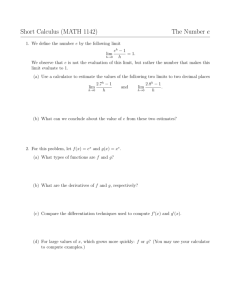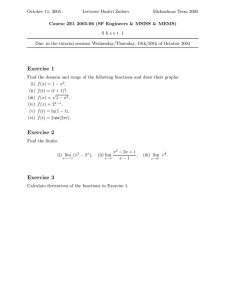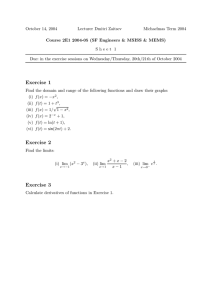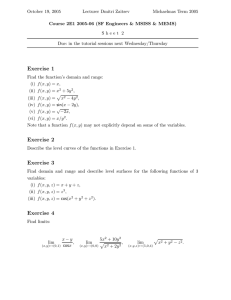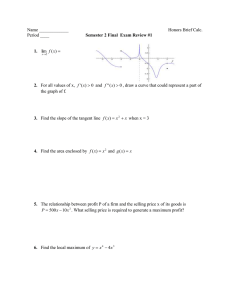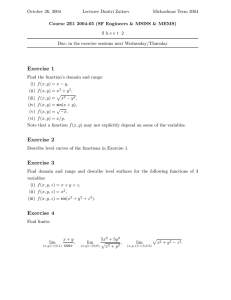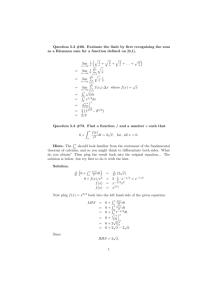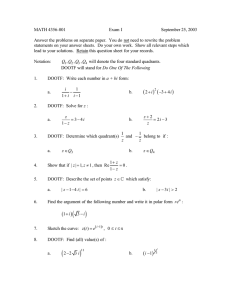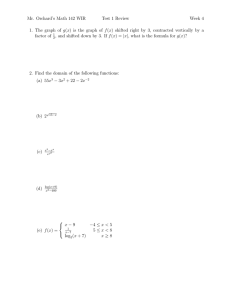Mr. Orchard’s Math 142 WIR Sections 1.5, 3.1 Week 3
advertisement
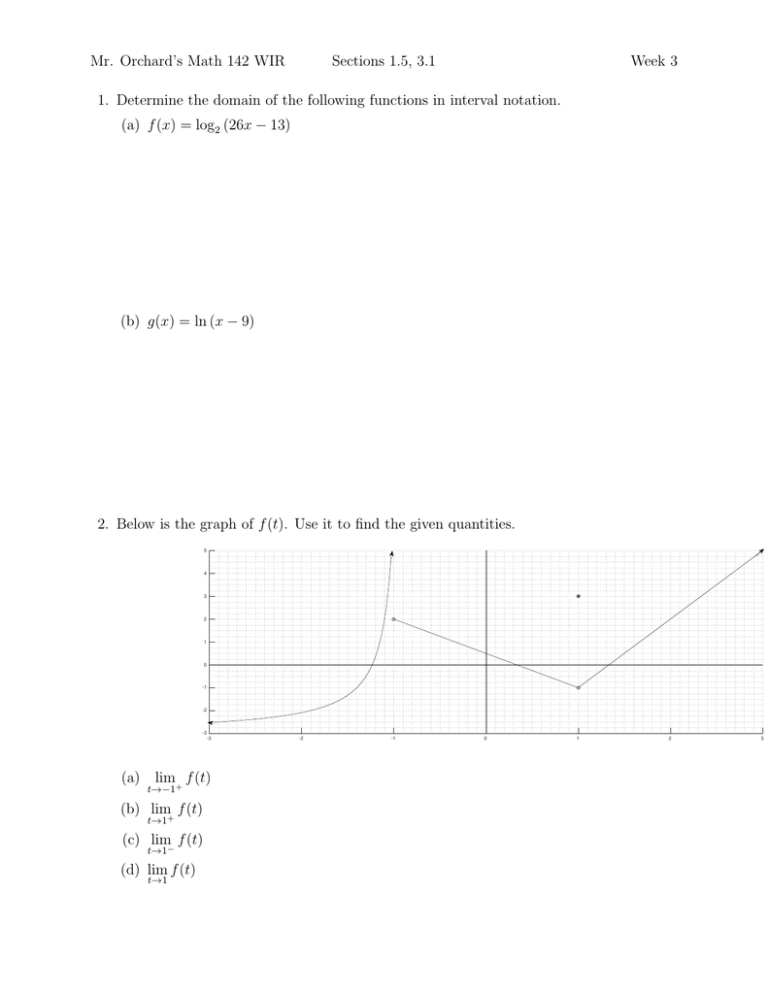
Mr. Orchard’s Math 142 WIR Sections 1.5, 3.1 Week 3 1. Determine the domain of the following functions in interval notation. (a) f (x) = log2 (26x − 13) (b) g(x) = ln (x − 9) 2. Below is the graph of f (t). Use it to find the given quantities. 5 4 3 2 1 0 -1 -2 -3 -3 (a) lim+ f (t) t→−1 (b) lim+ f (t) t→1 (c) lim− f (t) t→1 (d) lim f (t) t→1 -2 -1 0 1 2 3 Mr. Orchard’s Math 142 WIR Sections 1.5, 3.1 3. Simplify the following expressions: (a) 8log8 9 (b) log2 (42 ) (c) 3log9 4 (d) 64 log6 3 4. (a) Evaluate f (x) = x f (x) 0.9 0.99 0.999 1 DNE 1.001 1.01 1.1 ln x x−1 at the given numbers correct to 4 decimal places. (b) Guess the value of lim f (x). x→1 Week 3 Mr. Orchard’s Math 142 WIR Sections 1.5, 3.1 5. Use the change of base formula to evaluate log2.2 8.3 to 4 decimal places. 6. Determine the following limits, if they exist. (a) lim 2x(x − 12) x→10 (b) lim x→−5 (c) lim x→4 √ −16 − 5x x2 +x−20 x−4 x2 −x+12 x−3 x→3 (d) lim (2+h)2 −4 h h→0 (e) lim Week 3 Mr. Orchard’s Math 142 WIR Sections 1.5, 3.1 7. Solve the following equations for x. (a) 6 ln(x) = 1 (b) 2x+9 − 5 = 0 (c) log(7 − 7x) = 2 (d) 3(10)8x = 18 Week 3 Mr. Orchard’s Math 142 WIR 8. If f (x) = Sections 1.5, 3.1 Week 3 x +6 x ≤ 20 5 √ , determine the following limits. 101 − x x > 20 (a) lim− f (x) x→20 (b) lim+ f (x) x→20 (c) lim f (x) x→20 9. Use the properties of logarithms to rewrite log8 of simpler logarithms. z+7 x(y−2)2 as the sum and/or difference Mr. Orchard’s Math 142 WIR Sections 1.5, 3.1 Week 3 10. For each part, determine the values of x for which g(x) is discontinuous. (a) g(x) = x+3 (x+3)(x+6) (b) g(x) = 2xx −11x x3 −12x2 +35x x≤4 5 − 2x x−7 4<x<8 (c) g(x) = 2 x −2 x≥8 11. Alice has invested money in an account which pays annual interest at 3.9% compounded quarterly. (a) How long will it take for the account to double in value? (Round to one decimal place.) (b) How long will it take for the account to triple in value? (Round to one decimal place.) Mr. Orchard’s Math 142 WIR Sections 1.5, 3.1 Week 3 12. Find the value(s) of A that make f continuous everywhere, where x2 −4 x<2 x−2 f (x) = 2 Ax − 2x − 6 x ≥ 2 13. The effective rate for a continuously compounded account is 5.6%. What is the nominal rate for the account?
